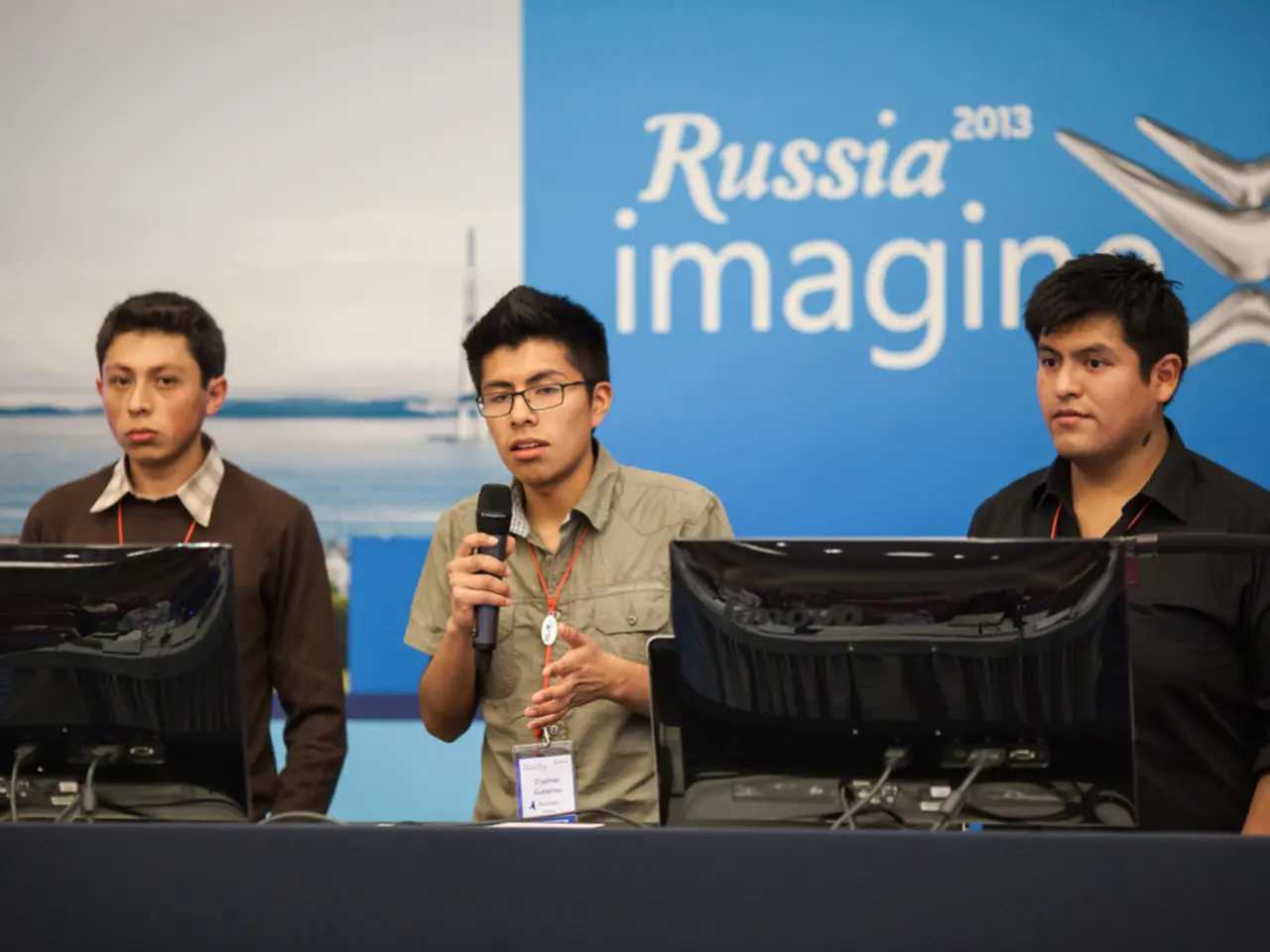Trump and Putin exchange handshakes at the Alaska Summit - Live coverage: Trump and Putin exchange handshakes at Alaska summit
The Alaska summit between US President Donald Trump and Russian counterpart Vladimir Putin is taking place against a backdrop of concerns about a potential "territorial exchange" that could violate international law. The meeting, which does not include Ukraine's President Volodymyr Zelensky or representatives from the European Union, is focused on discussing the future of Ukraine.
The ongoing conflict in Ukraine, now in its fourth year, is marked by concerns about the violation of international law. The discussion about a "territorial exchange" in Ukraine raises apprehensions about Russia benefiting from such a violation. There is a risk that Russia may emerge as the winner from the violation of international law in the context of the Ukraine conflict.
Renewed negotiations for peace began in 2025 after Donald Trump became U.S. president again. Trump has broadly agreed with Russian peace proposals, which Russia insists on as conditions for ending the war. Russia demands recognition of all occupied Ukrainian territory as Russian, permanent restrictions on Ukraine's military, a prohibition on Ukraine joining NATO, and sanction relief. Russia sees the root causes of the war as NATO's eastward expansion and alleged discrimination against Russian speakers.
Ukraine's position remains firm on a full Russian troop withdrawal, return of prisoners and kidnapped children, prosecution of Russian war crimes, and security guarantees preventing future aggression. The Russian Ministry of Foreign Affairs (MFA) has rejected the timeline Trump prefers for a Putin-Zelenskyy meeting and insists on security guarantees that address Russian demands, dismissing Western security guarantees for Ukraine as a “road to nowhere” without addressing Russia’s concerns.
There is cautious hope for peace in Ukraine due to this meeting, but there is also fear that Russia may benefit from violating international law. The potential for a fair and lasting peace remains uncertain. The core issues—territorial status, NATO membership, military restrictions, and accountability—are deeply opposed by both sides. The Alaska meeting has catalysed some diplomatic momentum, but Russia’s intransigence on key demands and Ukraine’s insistence on sovereignty and justice mean negotiations, while ongoing, face an uphill struggle.
The situation remains fluid with no immediate peace agreement. Both sides and their international allies appear entrenched, though the potential for nuanced security guarantees and high-level meetings offers a conditional pathway forward. The ongoing conflict in Ukraine is a complex and evolving situation, and the outcome of the Trump-Putin meeting in Alaska will likely have significant implications for the future of Ukraine and the wider region.
[1] The New York Times, "Trump and Putin Meet in Alaska, Renewing Talks on Ukraine," 16th May 2025. [2] BBC News, "Russia Rejects Trump's Timeline for Putin-Zelenskyy Meeting," 20th May 2025. [3] The Washington Post, "European Powers and U.S. Discuss Potential Security Guarantees for Ukraine," 25th May 2025. [4] The Guardian, "Trump Pushes for Putin-Zelenskyy Meeting, but Russia Rejects Conditions," 30th May 2025.
The Alaska summit between US President Donald Trump and Russian counterpart Vladimir Putin, a top news item globally, has reignited politics and general-news discussions about the future of Ukraine. The talks, while focusing on peace negotiations, have sparked fears that a potential "territorial exchange" could violate international law, as reported by multiple world news sources. With Russia demanding recognition of occupied Ukrainian territory and permanent military restrictions, the ongoing conflict in Ukraine remains a significant concern for the international community.






